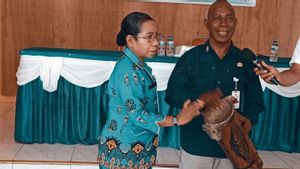JAKARTA - The Human Rights Foundation (HRF) has launched a central bank digital currency tracker (CBDC). This appears in the announcement at the Oslo Freedom Forum event they are holding. This online tracker has published educational materials and tip lines. It is estimated that this tracker will be fully functional towards the end of the year.
This tracker is from an eight month fellowship at HRF that was announced in January. The scholarships were awarded to Cato Institute policy analyst Nick Anthony, researcher Janine Romer and podcaster Matthew Mezinskis. The Cato Institute is a staunch opponent of CBDC.
"This will be an online resource that describes the development of central bank digital currencies around the world, especially in authoritarian countries, as well as the red flags of civil liberties and the risks associated with this," said HRF's chief strategy officer, Alex Gladstein, in a video. promotion, quoted by Cointelegraph.
VOIR éGALEMENT:
Because CBDCs are central bank obligations, this "creates a direct link between citizens and the central bank," which "opens the door to so many human rights issues regarding CBDC adoption," according to the CBDC tracker on HRF's website.
HRF is an active supporter of Bitcoin. Gladstein has stated to Cointelegraph before that Bitcoin "improves democracy" and can reduce incentives for war.
Based on an unrelated open-source CBDC tracker website, most central banks in the world are conducting research on CBDCs, but only three CBDCs have been launched. The first is Sand Dollar from the Bahamas, Jam-Dex from Jamaica, and eNaira in Nigeria. The website also lists 14 test projects, including China's digital yuan. According to HRF, the digital yuan already has 300 million users.
The English, Chinese, Japanese, Arabic, and French versions are automatically generated by the AI. So there may still be inaccuracies in translating, please always see Indonesian as our main language. (system supported by DigitalSiber.id)














